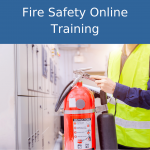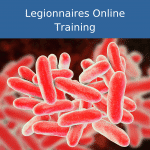Description
CONCUSSION AWARENESS TRAINING COURSE
This course has been designed to ensure that you hold an awareness level of knowledge of concussion and it’s treatment. Our online Concussion training course aims to enhance your knowledge of concussions, including their signs and symptoms, as well as relevant legislation.
This e-learning course provides the knowledge and understanding to allow candidates to work alongside other professionals and make initial assessments to meet the needs of the individual.
- Developed by professionals
- Accredited by The CPD Accreditation Group
- 100% online, learn at your own time and pace
- Translates into over 100 different languages
- Instant certificate downloaded
By completing this course, you will gain a deeper understanding of concussions and be better equipped to identify and respond to them effectively.
At the end of this course you should be able to:
- Describe what concussion is
- Recognise signs and symptoms of concussion
- Describe how to assess someone with a concussion
- Understand first aid measures for concussion
- Understand when a head injury may be a medical emergency
- Describe what recovery advice might be for concussion
- Understand concussion in the context of sport
Concussions can occur after a traumatic head injury, posing long-term risks if left untreated. It is vital for your staff to be knowledgeable about concussions and able to identify warning signs to ensure patient safety.
Course Outline: Concussion Awareness
Our Concussion Awareness training course covers concussion definition, signs, symptoms, assessment, first aid, recognizing medical emergencies, recovery guidance, and sport-related concussions. Ideal for coaches, parents, trainers, and anyone seeking comprehensive knowledge on concussions.
The key points covered in this course are:
- Defining concussion
- Signs of concussion
- How to assess a concussion
- First aid measures
- Medical emergency
- Recovery advice
- Sport concussions
Defining concussion:
This module provides a comprehensive overview of what a concussion is, including the causes, underlying mechanisms, and impact on the brain. Learners will gain a clear understanding of the definition and diagnostic criteria for concussions.
1. Signs of concussion:
This section focuses on the common signs and symptoms associated with concussions. Learners will explore a range of indicators such as headaches, nausea, dizziness, confusion, memory problems, and changes in behavior or mood. Emphasis will be placed on recognizing these signs in various contexts and populations.
2. How to assess a concussion:
Learners will acquire the knowledge and skills required to assess and evaluate a potential concussion. This includes learning about assessment tools and techniques, conducting proper examinations, gathering relevant information from the individual, and identifying the severity of the injury.
3. First aid measures:
This module delves into essential first aid measures for concussions. Learners will be guided on how to provide immediate care, support, and comfort to someone who has sustained a concussion. Topics covered may include rest, symptom management, and appropriate steps to take until medical help arrives.
4. Medical emergency:
This section explores the indicators and circumstances that may indicate a head injury as a medical emergency. Learners will learn to recognize the red flags that require immediate medical attention and the appropriate steps to follow in emergency situations.
5. Recovery advice:
Learners will gain insights into the recommended protocols and guidance for concussion recovery. This may include information on rest, gradual return to activities, symptom monitoring, self-care strategies, and seeking medical follow-up. The focus will be on supporting the individual’s healing process and promoting a safe recovery.
6. Sport concussions:
This module specifically addresses concussions in sports settings. Learners will explore the unique considerations, protocols, and preventive measures associated with concussions in athletic activities. Topics may include concussion management for athletes, return-to-play guidelines, and sport-specific strategies for minimizing concussion risks.
By providing additional context to each of these bullets, learners will have a more comprehensive understanding of the content covered in the course and its relevance to various aspects of concussion recognition, assessment, first aid, medical emergencies, recovery, and sport-related concerns.
Learning Outcomes:
Upon completion of this Concussion course, learners will possess knowledge and understanding in the following areas:
- Defining concussion: Describe the nature and characteristics of a concussion.
- Signs of concussion: Recognize and identify signs and symptoms of concussion in adults and children.
- How to assess a concussion: Explain the process of assessing someone suspected of having a concussion.
- First aid measures: Understand appropriate first aid measures for managing a concussion.
- Medical emergency: Recognize when a head injury may require immediate medical attention.
- Recovery advice: Describe the recommended recovery advice and strategies for individuals with a concussion.
- Sport concussions: Comprehend the specific considerations and impact of concussions within the context of sports.
Frequently Asked Questions:
Why is concussion awareness important?
Concussion awareness is important because it enables early recognition, promotes prevention, ensures proper response and care, mitigates long-term consequences, enhances safety in sports and activities, and fosters education and advocacy for head injury prevention.
Who should take concussion awareness training?
Concussion awareness training is valuable for various individuals, including:
- Healthcare Professionals: Care workers, nurses, and other medical personnel involved in caring for head injury patients should take concussion awareness training.
- Coaches and Sports Officials: Those working in sports and recreational settings, responsible for the safety and well-being of athletes.
- Educators: Teachers, school staff, and administrators who interact with children and young people on a daily basis.
- Parents and Caregivers: Individuals responsible for the well-being of children and adolescents, ensuring their safety during activities.
- Athletes: Sports participants who need to understand the risks, signs, and appropriate response to concussions.
- First Responders: Emergency personnel who may encounter head injury situations and require knowledge of concussion management.
- Community Organizations: Staff and volunteers working in community centers, clubs, and organizations involving physical activities or events.
Concussion awareness training benefits anyone involved in activities where head injuries may occur, equipping them with the knowledge to recognize, respond, and promote safety regarding concussions.






